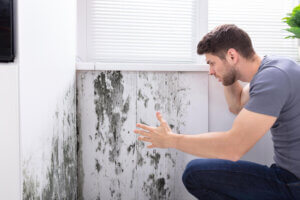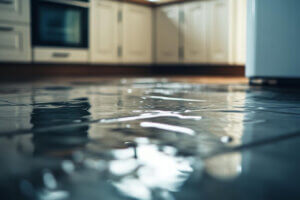Basement flooding is a nightmare for any homeowner. Water damage can ruin your belongings, weaken your home’s structure, and lead to long-term problems like mold. But the good news is, there are simple steps you can take to prevent your basement from flooding.
In this article, we’ll explore various ways to protect your home from water damage. From maintaining your foundation to installing essential flood prevention tools, you’ll find practical tips that are easy to follow. No need to be an expert or spend a fortune—just some basic knowledge and a little effort can go a long way.
By the end of this guide, you’ll feel empowered to take control of your home’s safety. Implementing these measures will help you keep your basement dry and your peace of mind intact. So, let’s dive into these simple steps to prevent basement flooding.
Inspect and Maintain Your Home’s Foundation
Regular inspections and maintenance of your home’s foundation are essential to prevent basement flooding. The first step is to check for cracks and leaks. Walk around your basement and look closely at the walls and floors. Small cracks can be filled with waterproof sealant, but larger cracks may need professional repair to prevent water from seeping in.
Next, ensure proper sealing of foundation walls. Applying a waterproof coating to your basement walls can help keep moisture out. This coating acts as a barrier, stopping water from entering through tiny gaps and pores in the concrete. Make sure to check the sealant periodically and reapply it if you notice any wear or peeling.
Gutters and downspouts must also be regularly cleaned and cleared. Gutters collect rainwater and direct it away from your home, but if they’re clogged with leaves and debris, water can overflow and pool around your foundation. Clean your gutters at least twice a year and make sure your downspouts extend far enough to channel water away from your house. By keeping your gutters clean, you can reduce the risk of water seeping into your basement.
Install Essential Flood Prevention Tools
Installing the right tools can greatly reduce the chance of basement flooding. Start with sump pumps and backflow valves. A sump pump removes water that collects in a sump basin, usually found in the basement. It’s essential for keeping your basement dry during heavy rain or plumbing leaks. Adding a backflow valve can prevent sewage from backing up into your basement during flooding.
French drains and gutter extensions are also helpful. A French drain is a gravel-filled trench with a perforated pipe that redirects water away from your foundation. Gutter extensions attach to your downspouts, guiding water even further away from your home. Both tools are effective at keeping groundwater from reaching your basement.
Lastly, consider using window well covers and basement door shields. Window well covers prevent water from pooling around basement windows, which could otherwise leak into your basement. Basement door shields block water from entering through basement doors. These simple additions can make a big difference in preventing flood damage. By installing these essential flood prevention tools, you can safeguard your basement against unexpected water issues.
Improve Yard Drainage
Proper yard drainage plays a significant role in preventing basement flooding. Begin with the grading of your yard. Your yard should slope away from your home so water naturally flows away from your foundation. Review your yard’s slope and, if needed, bring in soil to create a gentle grade leading away from your house. This simple step can prevent water from pooling around your basement walls.
Installing rain gardens and swales can also help manage water runoff. A rain garden is a planted depression in your yard that absorbs rainwater, while swales are shallow, sloped ditches that redirect water away from your home. Both options not only enhance the beauty of your yard but also prevent excess water from reaching your basement.
Using permeable paving systems is another effective strategy. Unlike traditional concrete, permeable pavers allow water to seep through and soak into the ground. This reduces the volume of runoff heading toward your home. Consider replacing some of your concrete pathways or driveways with permeable options to improve drainage and protect your basement from flooding.
Regularly Monitor and Maintain Basement Areas
Keeping a close eye on your basement’s condition is crucial for flood prevention. Set up moisture detectors and alarms to warn you of leaks or high humidity levels. These devices can be placed around appliances, near sump pumps, and in other vulnerable areas. If moisture is detected, the alarms can alert you to take immediate action.
Scheduling regular inspections and maintenance is also essential. Check your basement for signs of moisture or leaks regularly. Look for damp spots, mold, and unusual smells. Promptly addressing these issues can prevent small problems from becoming major ones. Having a professional inspect your basement periodically can also ensure that nothing is overlooked.
Finally, keep basement appliances and systems in good condition. Regularly service sump pumps, dehumidifiers, and HVAC systems. Ensure that drains are clear and functioning properly. Store valuables in waterproof containers and consider raising appliances off the floor to protect them in case of minor flooding. By staying proactive, you can maintain a dry and safe basement space.
Conclusion
Taking steps to prevent basement flooding can save you from a lot of stress and expense down the road. Regularly inspecting and maintaining your home’s foundation, installing essential flood prevention tools, improving yard drainage, and keeping a close watch on your basement can make a huge difference.
Water damage can be costly and harmful, but with the right precautions, you can protect your home and belongings. It’s about taking practical steps and being proactive. The peace of mind you’ll gain from knowing your basement is well-protected is invaluable.
If you’re facing a tough flood situation and need expert water removal services, remember that Premier Emergency Water Removal is here to help. Contact us today and keep your home safe and dry.



